The best engines for making your own visual novel
Want to create a visual novel? These are the tools for the job, no matter where you're starting from.
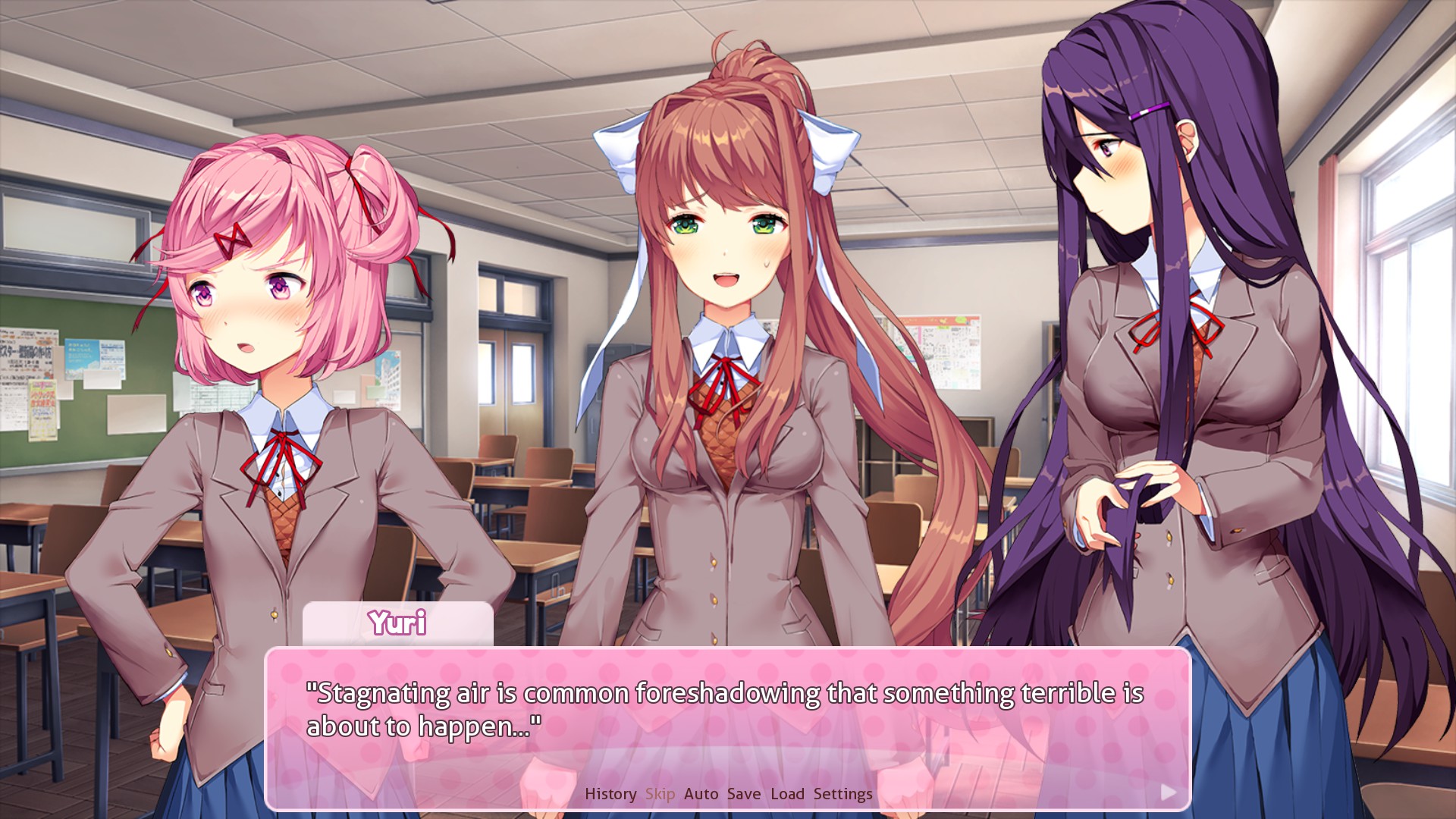
This story was originally published in February of 2018. We're republishing it today in case you find yourself with some time on your hands and a need to be creative.
Visual novels, while accessible in terms of ease of play, can be a frustrating thing to create. You plot out your narrative, chart all your dialogue, create memorable characters and then when it’s time to tie it all together and transform it into a viable, player-ready videogame, your project can come to a screeching halt. What if you don’t know anything about coding or programming? How could you take your artwork, painstakingly crafted plot threads, and killer twists and translate them into a finished game ready to go online?
Where do you even begin?
Relax. There are solutions right at your fingertips, and some of them are even free. But it’s understandable to feel trepidation about your labor of love. Like we said in our best 2D game engines list, making games is—you guessed it—hard. But it doesn’t have to be. There are several programs out there that you can pick up and learn, and while some of them are more limited than others there’s a wide variety of tools that you can use to either code a game from the ground up or use WYSIWYG tools to bring your project to life.
No matter your budget or creation style, you should be able to find something here to help get that project out of your head and onto your screen.
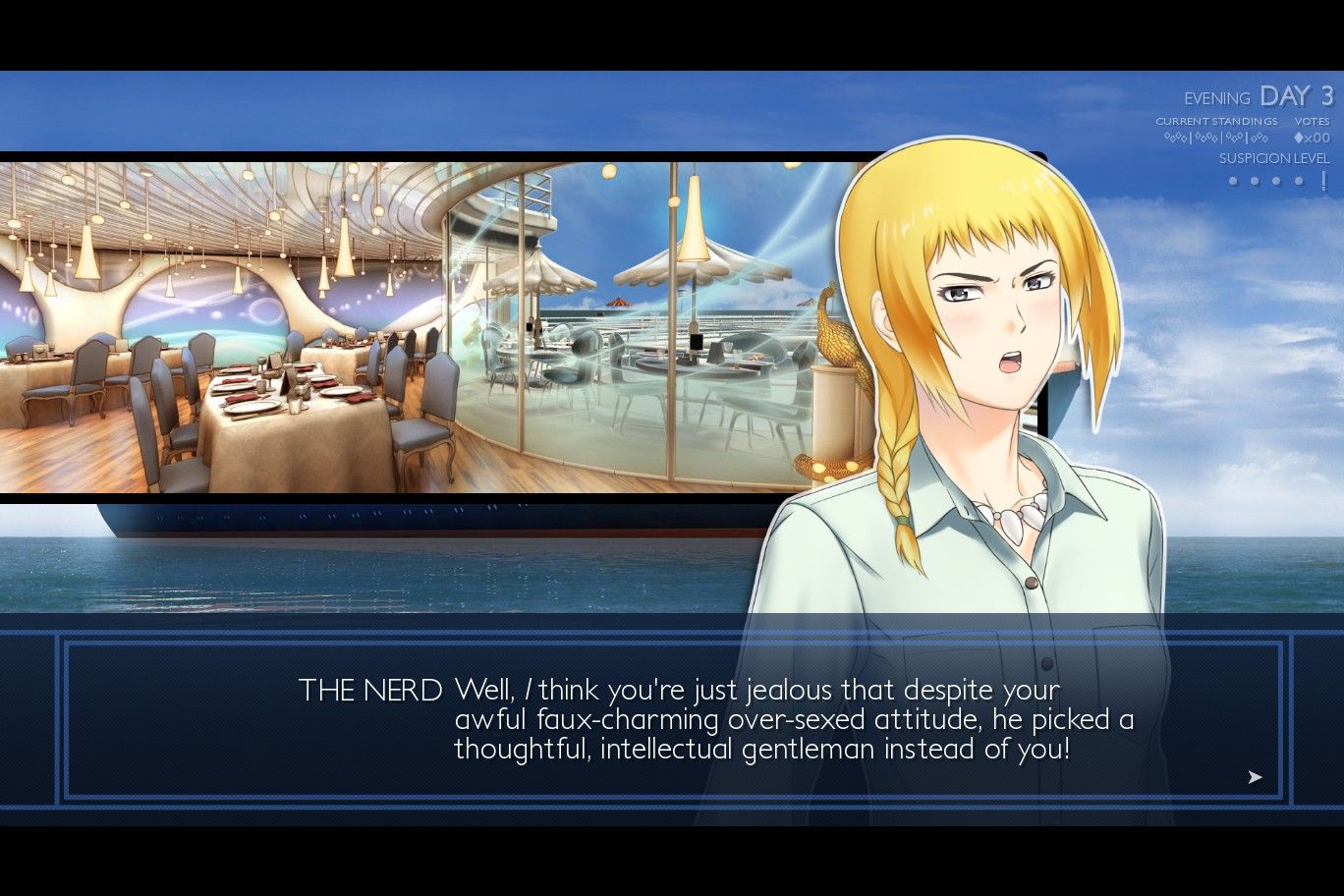
Ren’Py
PC Gamer's got your back
Price and License: Free
Perfect for you if: You enjoy straightforward design, learning bits of code, and following instructions to implement additional mechanics
Example games: Butterfly Soup, Katawa Shoujo, Ladykiller in a Bind, Long Live The Queen, Analogue: A Hate Story, Doki Doki Literature Club!
Ren’Py is likely the first tool you’ll hear about when you begin your search. Talking to VN creators, Ren’Py is the choice of the overwhelming majority. It’s been around for quite some time, and you’ve probably played several games that use Ren’Py as their basis. It’s a simple open source engine that only truly requires you know how to edit text and utilize some basic Python programming. All of this, however, can be learned through visiting online tutorials, tinkering with sample projects, and studying Python independently.
You can implement stat-tracking systems, item management mechanics, and various other cool tweaks
When setting out to create my own visual novel, my first stop was with Ren’Py, as I had used it years ago to enter an online contest (and won!). Despite having zero knowledge of Python or any prior programming experience, I was able to edit the sample game it came packaged with in a satisfactory manner, simply writing code based on the examples in the short visual novel that serves as a demo of what Ren’Py is capable of. More difficult things like parallax transitions, customized menus, and transitions took some studying, but I was able to figure them out. Your mileage will vary in this department, naturally.
As long as you can edit photos, provide custom artwork, and follow simple instructions, Ren’Py opens up dramatically beyond the simple conversation paths most visual novels are content with. You can implement stat-tracking systems, item management mechanics, and various other cool tweaks that make your game feel more rich and full-featured than you may have previously thought. It’s worth reaching outside of Ren’Py’s apparent feature set, as there’s a wild world of additional tutorials out there that can help you get the most out of it.
What users say:
Joel Peterson, Destructoid: "For what little code you actually need to learn to put together a basic game, Ren’Py makes sense. It is well supported by a massive community in the Lemma Soft forums, and relatively bug free. It is extremely flexible. For new game creators it might initially seem more intimidating, but it is worth the time. Ultimately my work, while not initially faster, is going far smoother due to the less restricting nature of the engine."
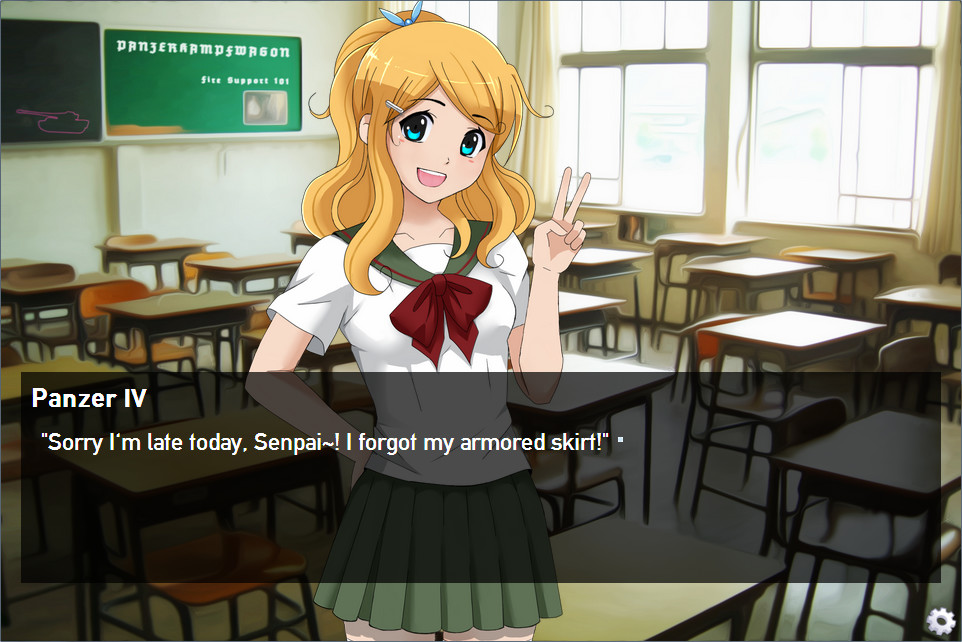
TyranoBuilder
Price: $14.99
License: Free
Perfect for you if: You’re not interested in bells and whistles, learning much code, and want a simple drag-and-drop interface
Example games: True Lover’s Knot, One Last Chance, The Ties That Bind, Dear & Mine, Panzermadels: Tank Dating Simulator
If you’re not as interested in coding or Python as in just getting your project done, TyranoBuilder may be more your speed. You need to know exactly zero about coding. It’s the fastest way to make a quick-and-dirty prototype, especially if you’re pitching a game or need a loose concept, but if you want to flesh the rest of your project out it can do that too.
That said, many of the more complex things you can implement in systems like Ren’Py aren’t possible within the confines of TyranoBuilder. After tinkering with the program for a while, I was able to get the skeleton of a visual novel up and playable in the span of 15 minutes, with some sloppy writing and artwork whipped up in MS Paint. It was quick and dirty as expected, but in many ways that’s what TyranoBuilder is for.
You can create every aspect of your visual novel using the software’s visual editor, which means all you really need to do is drag and drop elements to and from a component list. You can even change the text speed, add music, dialogue, branching paths, and tweak character positioning in this way. If you have no patience for coding and need a program that does it all for you, this is the path you should take, so long as you’re not looking for something too complicated.
What users say:
Susan Chang, Quill Studios (A Summer With the Shina Inu): "TyranoBuilder is drag and drop and easy for newcomers who don't wanna touch a line of code. It can be customized with HTML/CSS. It’s fast for prototyping. Specifically, it's fast to create something workable in under an hour if for some reason you wanna check branches and stuff."
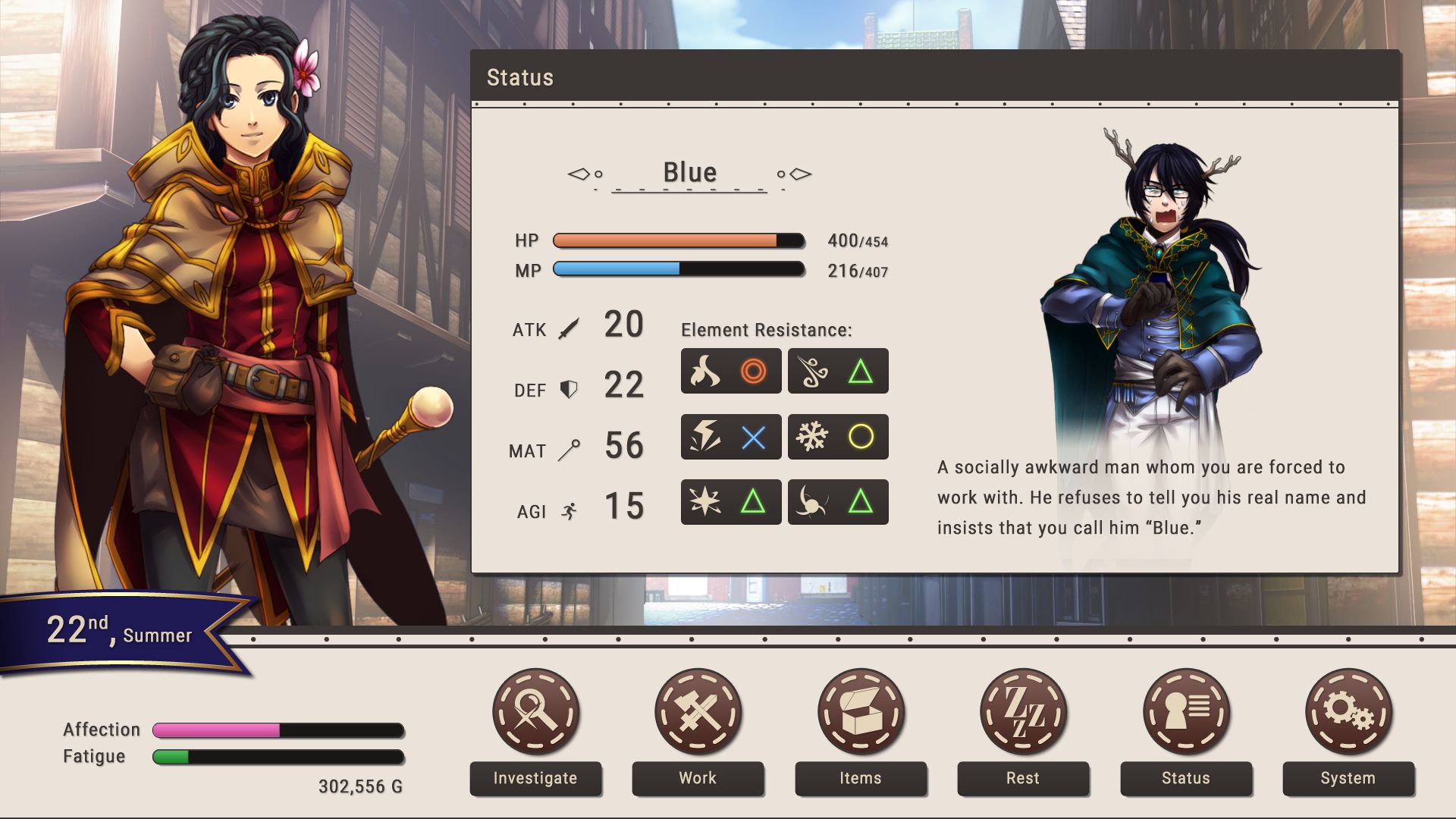
Visual Novel Maker
Price: $59.99
License: Free
Perfect for you if: You’ve got money to burn and at least some basic knowledge of coding
Example games: Alstroemeria, Mr. End of the World, Grave Affection: Your Sentiments
Degica’s all-in-one visual novel engine is the priciest out of all the options listed here, but it also purports to be one of the best options for creating your own visual novel. While its price may be a barrier for some, Visual Novel Maker does come with a full suite of features.
Unfortunately, while Visual Novel Maker has plenty of features to help you make the best visual novel possible, it’s not as user-friendly as TyranoBuilder or even Ren’Py. There’s a massively deep set of tools that both beginners and advanced users can create projects with, but you’ll have to have at least a rudimentary understanding of programming to get started. Luckily, there’s a massive guide you can read before starting. The user interface is quite busy, and takes a bit of getting used to. While you can drag and drop commands much like with TyranoBuilder, there are a number of commands to learn and memorize before you can start making real progress.
All of the actions needed to layer together scenes are color-coded, but you need to know what order to place them in, how to trigger characters as they join scenes or speak, and build on top of that further. There’s a dizzying amount of options meant for those who want to make the most customizable visual novel possible. I didn’t find it very welcoming despite my experiences with the other visual novel engines, but its potential is obvious from the moment you load it up.
Visual Novel Maker is an all-in-one package where you pay for the convenience of elements of game creation that you’d like to use, but either don’t want to spend the time figuring out or decide to devote to learning an actual coding language instead. That’s not to downplay its usefulness, but you’d likely be better served by the other, simpler packages here or learning more about a specific language to save a bit of money before jumping in completely.
What users say:
Lucybelle, Grave Affection ~Your Sentiments~: "I found it very easy to get the hang of and definitely intend to use it for more projects!"
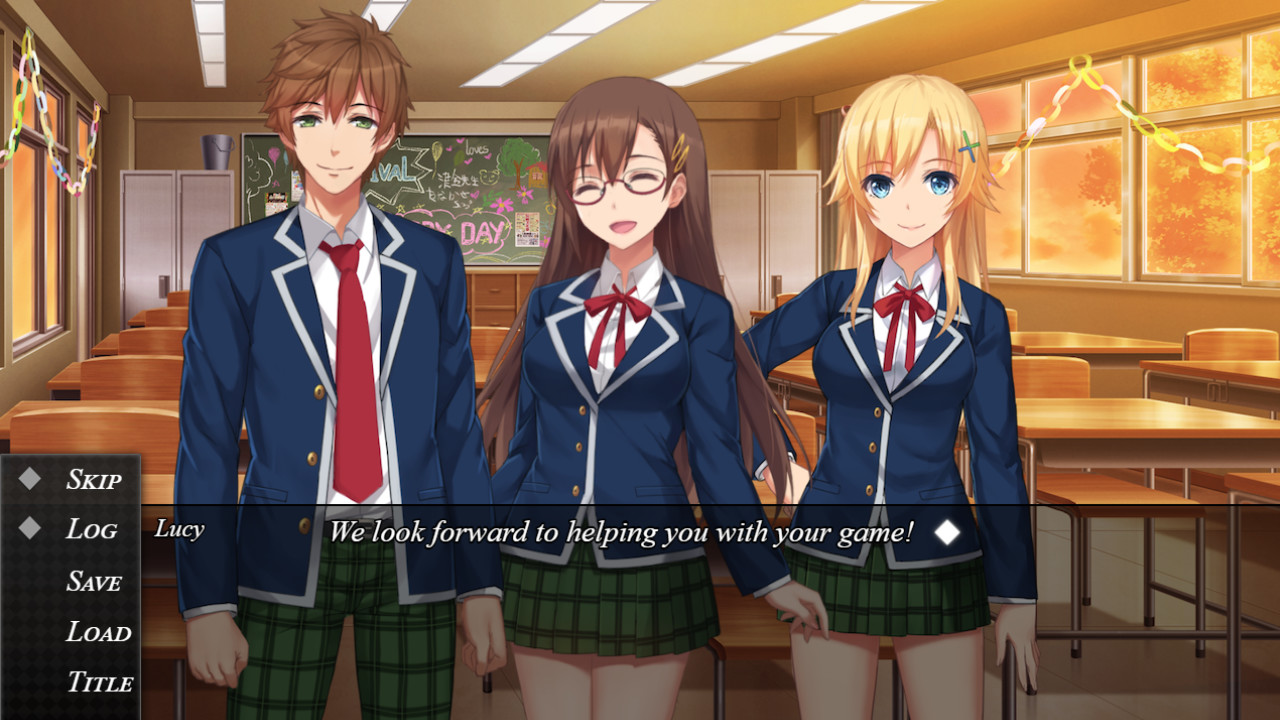
Of course, these three tools aren’t the only options out there when it comes to creating interactive fiction and visual novels. Unity is always an option, but that comes with its own headaches—particularly if you’re not a coding veteran. But it also comes with perks, like being able to make exactly the game you want, with fewer limitations than sticking with one particular program. Twitter user and software engineer @DocGilgamesh shared his thoughts on just that: "While I've been procrastinating heavily on it (program as a day job, damn if I do it when I get home), I immediately went to Unity since it was the engine I was most familiar with and I want to add little minigames and other knick-knacks that are more reminiscent of older JP games."
Some creators have turned to their own custom tools to make exactly what they felt was right for their projects, as well. Jean Leggett, CEO of One More Story Games, did just that with the studio and program StoryStylus. "In a nutshell, we wanted to make it easier for storytellers to become the focus in videogame creation. Smart games for smart people. Games for word nerds," she explained. "Our approach is to break down the elements of storytelling into Lego bricks, if you will. People, places, things, relationships, conversations, etc. We've published seven 2D point and click adventure games with it over the last three years with several award-winning games, and we've also taught week-long camps with kids aged 8+ to prove that our game engine works."
In the end, it all comes down to figuring out which engine works best for you and your preferences when it comes to game design. With the right tools, and plenty of drive, it won’t matter where your strengths lie, as long as you want to bring your project to life. You can do it!
The biggest gaming news, reviews and hardware deals
Keep up to date with the most important stories and the best deals, as picked by the PC Gamer team.

